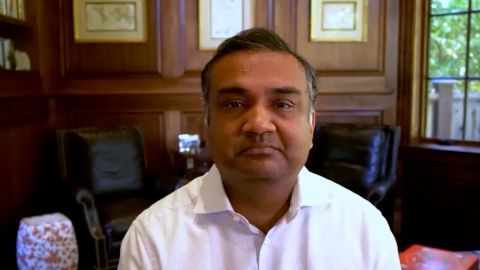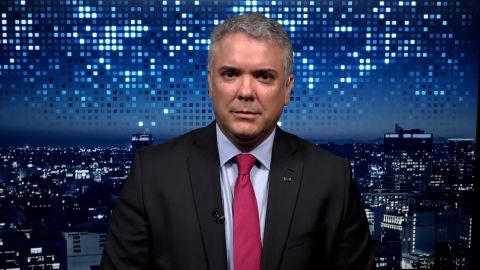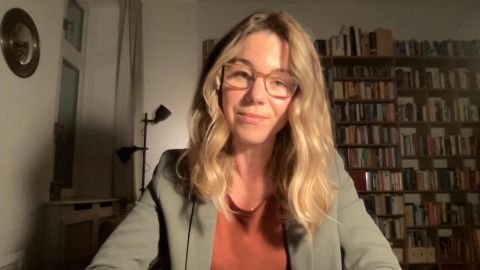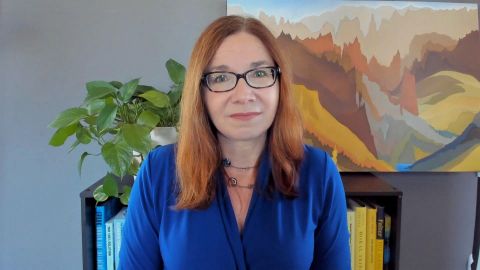Read Transcript EXPAND
CHRISTIANE AMANPOUR: Angela Merkel’s near 16 years as chancellor after winning four terms and becoming the undisputed leader of the global democracy camp. Through the presidencies of George W. Bush, Barack Obama, Donald Trump, and now Joe Biden, Merkel has led Western Europe’s strongest economy, with a record for competent crisis management, tough negotiating skills, and a welcoming stance on refugees. So, how will history remember her time in power? And who will Germans turn to next? Here to discuss is a close observer, journalist Katrin Bennhold from Berlin. Welcome to the program. So there are a lot of questions there. She — what would you say her superpower was?
KATRIN BENNHOLD, “THE NEW YORK TIMES”: Her superpower?
AMANPOUR: Yes.
BENNHOLD: I think her superpower is to bring young people together, quietly forge consensus around a table where there is a lot of dissent. This has been the superpower in Europe and this has been her superpower in Germany, because she hasn’t always done what was popular within our own camp. But you did it nevertheless, because this woman has a kind of sense of moral clarity. And she does what she thinks is right.
AMANPOUR: And would you say — people talk competent crisis manager. As you said, she’s a great negotiator. She won’t leave a room in a crisis until she’s brought people together and can walk out with a solution. And then, of course, there’s the incredible example that she led in 2015 of humanely saying, we can manage this. And, eventually, 1.2 million refugees entered Germany. Which one of those do you think will be what she is remembered — which one had the most impact on Europe, on Germany and on her?
BENNHOLD: There’s no question that the thing that she will be remembered for most is her decision in 2015 to welcome those refugees. I mean, this was the country with an ugly past, the country that committed the Holocaust, that did the right thing, that was on the right side of history, and that welcomed these people in need at a time when all these other countries, which traditionally might have been more associated with being welcoming to outsiders, being immigration countries — and I’m talking about the United States. I’m talking about Britain, even France — were not welcoming. And so, in that sense, it was kind of a redemptive moment for Germany. And it was kind of a moment of healing. And it sort of instantly created this aura around her that was quite emotional, a kind of very positive emotional narrative, which I’m not sure Germany ever had before. And it certainly turned her into an iconic leader.
About This Episode EXPAND
Climate scientist Katharine Hayhoe discusses her new book “Saving Us.” Colombia’s outgoing president Iván Duque reflects on his time in office. The New York Times’ Berlin bureau chief Katrin Bennhold reflects on the end of Angela Merkel’s 16-year chancellorship in Germany. YouTube’s Chief Product Officer Neal Mohan explains how the platform is handling the misinformation crisis.
LEARN MORE



